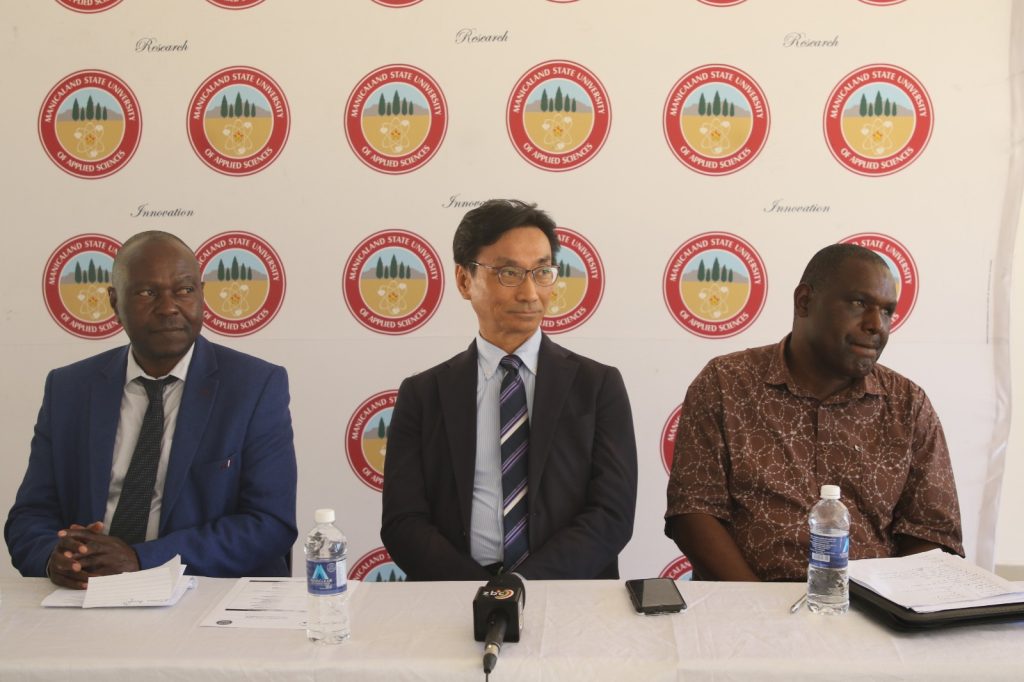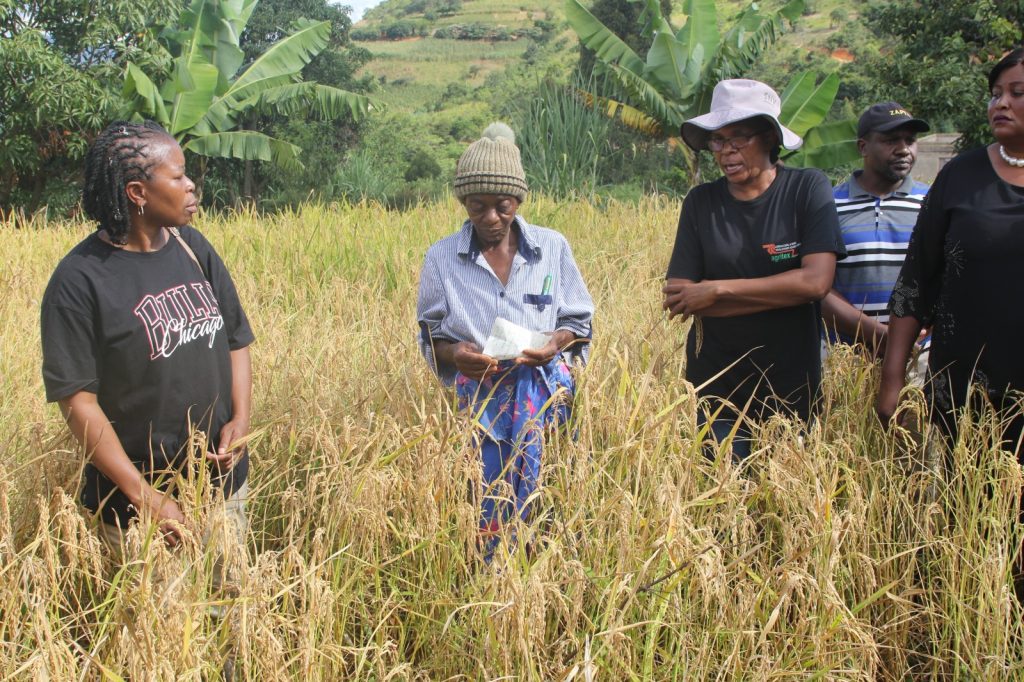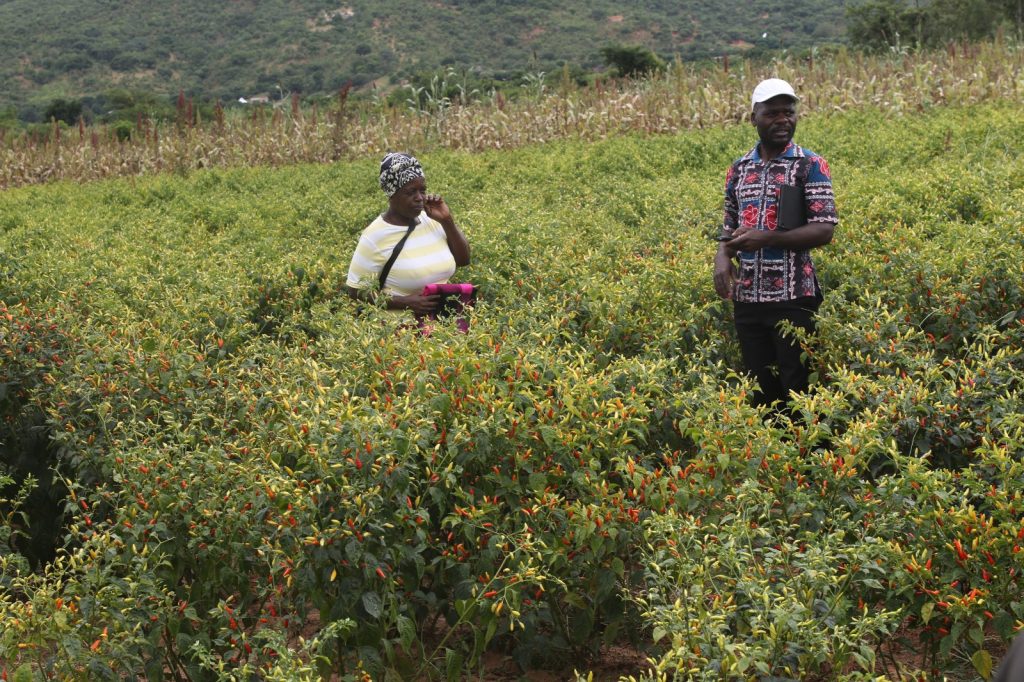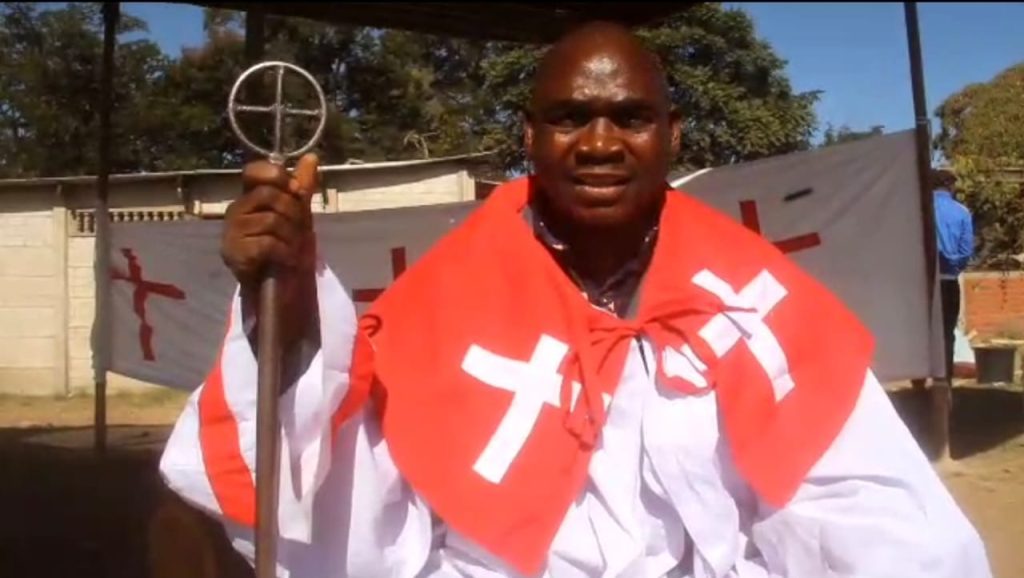Staff Reporter
THE Japan International Cooperation Agency (JICA) resident representative Shigeki Furuta said his organisation would continue to partner the government’s Smallholder Horticulture Empowerment Promotion (SHEP) programme to alleviate poverty and in support of rice production in the country.
SHEP approaches have developed in Kenya through a technical cooperation project by the Japan International Cooperation Agency (JICA) which started from 2006 and succeeded in increasing farmers’ income.
It is an approach which realises market-oriented agriculture and converts farmers’ minds from “grow and sell” to “grow to sell”.
Speaking to the media after touring Manunure and Nyakomba irrigation schemes in Manicaland Province last week said his organisation is going to support the Smallholder Horticulture Empowerment Promotion (SHEP) programme in order for them to secure a lucrative market for their products.

“As JICA we are going to continue supporting SHEP and we are encouraged to observe that the smallholder farmers are growing rice and this is encouraging because Zimbabwe imports 80 percent of rice.
“As farmers now grow rice it means in the long term the country is not going to import the rice and in the process save foreign currency.
“The production of rice is very promising and as JICA we are going to support the production of rice on research, value chain and mechanisation.
“We are pleased that the ministry of Agriculture is working on developing the national rice development strategy and we hope it’s going to be formalised soon.
“We are going to support them as JICA and we are bringing in new technology to help local farmers,” he said.
On his part, chief agriculture extension specialist in the ministry of Agriculture and SHEP project manager, Innocent Shayamano, said the horticulture programme had now covered eight provinces and they are now shifting focus on field crops, livestock and fisheries.
“The project started in March 2019 and it is going to end this year in June. We target smallholder horticulture farmers in different irrigation schemes as we encourage our farmers to practice farming as business through agricultural extension services using the SHEP approach in order to contribute to increased horticultural income.

“So far we have trained 3 252 farmers and 127 extension workers for the SHEP programme.
“We have now covered eight provinces targeting three districts in each province covering one irrigation per district.
“The ministry of Agriculture is now upscaling the SHEP programme into field crops, livestock and fisheries,” he said.
Shayamano added that the programme has brought positive impact in farmers’ lives.
“After market surveys farmers have now changed their varieties to suit what is required by the market and even the agricultural practices have changed.
“Farmers are now also conducting market surveys regularly and the project is now strengthening farmers’ collaboration among themselves.
“It also changes the farmers’ livelihoods in terms of income generation,” he said.





